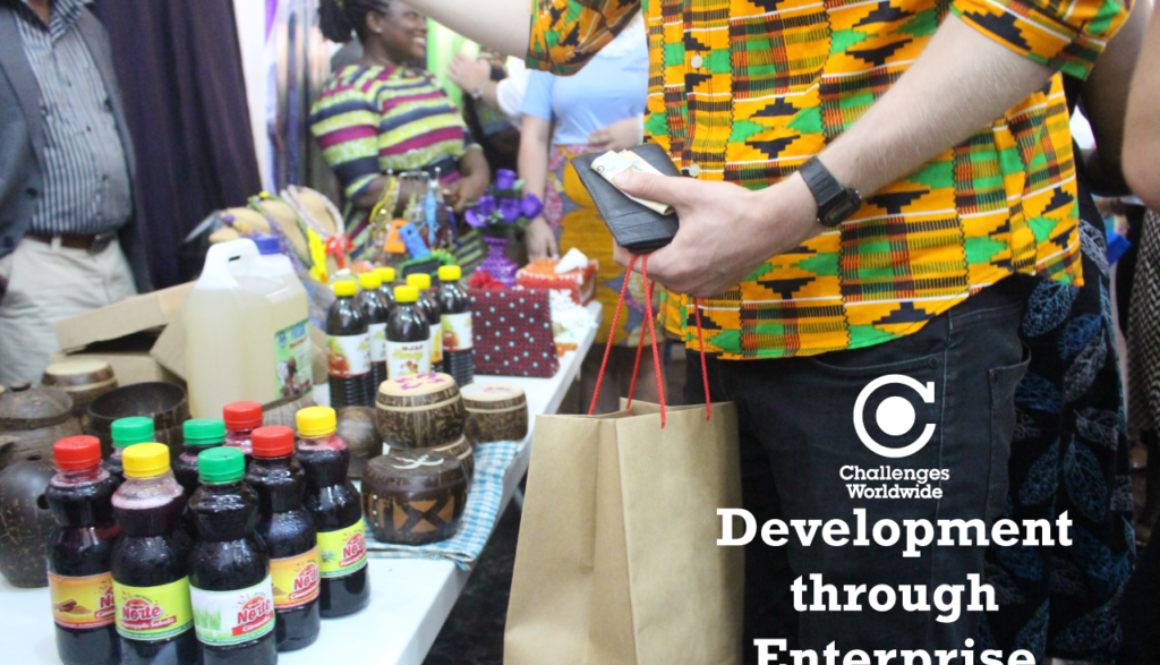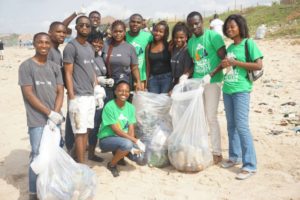How Does International Development Through Enterprise Work?
Challenges Worldwide work with other expert development agencies to deliver the International Citizen Service (ICS) programme. ICS is a development programme that brings together young people from the UK and developing countries to volunteer in some of the poorest communities in Africa, Asia, and Latin America. It is led by VSO and funded by the UK Government.
Challenges Worldwide want to see an end to communities around the world living in poverty! We work with small and medium-sized businesses to help them seek out new opportunities to grow. We support the businesses to grow sustainably and embed fair practice. Ensuring an enterprise has a positive impact on their community and the wider economy. We have seen that a decent living can empower communities to tackle many of the challenges they are facing. Challenges such as getting access to clean water and energy. Ensuring that there is a decent education and healthcare system. Most importantly protection working communities from climate change. At the core of all of these issues run the theme of inequality: women and marginalised people left out of the job market, workers being exploited by their employers and governments not implementing policies that protect their people from these issues.
To mark Global Entrepreneur Week 2016, we will explore how Challenges Worldwide’s work through the ICS programme is empowering enterprises to support their communities to face these issues head on and create positive change.
How does ICS ensure people can earn a decent living
“ICS works with businesses and enterprises to help them grow so they can provide a fair income and one day employ others and improve the local economy. We also run projects that help build people’s skills so they can get jobs. We believe that everyone should be able to earn a decent living and become self-sufficient because no one wants to rely on charity or aid. A secure income is the first step to ending the cycle of poverty and building the local economy”
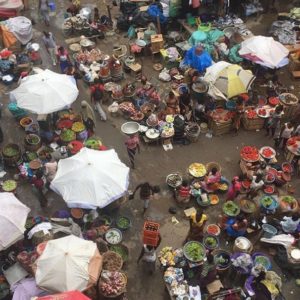
How do Challenges Worldwide ensure people can earn a decent living?
Building a strong economy is the most effective and sustainable way to address poverty. As a Challenges Worldwide volunteer, you will help grow small to medium-sized businesses, producing everything from organic honey to eco-friendly stoves. But your work doesn’t stop there. By helping these businesses succeed, you also help those around them – the farmers who can be trained up to produce honey themselves, the local women’s groups who can sell the stoves and fuel to their local community. Challenges help create employment and income for local individuals – the first step to making communities less reliant on aid.
Zambia, ASC African Sun
Currently, ASC has many social impacts. The most significant are the beehive project that ASC have implemented across Zambia in collaboration with Bee Sweet honey. They designed an improved beehive which is easier to assemble and cheaper to produce. They supply the beehive to small hold farmers across Zambia, they then buy the honey from the farmers at a competitive price. This supplies over 12,000 farmers with jobs and promotes environmental stewardship as honey production prevents deforestation, a huge problem in Zambia.
How does ICS help people Get a good education
“More and more young people are getting the chance to go to school, but some people are still excluded – by poverty, gender or because of their religion or background. Our projects encourage more young people to attend school, but also make sure they are included once they are in school. ICS helps children develop life skills as part of their education – like teamwork, leadership and confidence” – ICS blurb
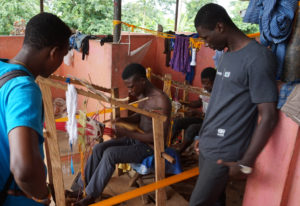 How does Challenges Worldwide provide a good education?
How does Challenges Worldwide provide a good education?
Challenges believe that no-one should be excluded from school as a result of poverty or gender. We also believe that the creation of long-term employment opportunities is the best option since it helps parents avoid the difficult decisions about which child, if any, they can afford to send to school. Supporting women-led businesses also provides vital role models for young girls and helps to break down the social barriers to female education and employment.
Uganda – Power Trust Limited
(clean energy provider dealing in sourcing, supplying and installation of solar systems, solar water heaters, power backup systems and generators) produces has impacted on the community through jobs creation. The company currently employs permanent workers and part-time workers. The company also offers training and internship programs to the youth. There are currently interns at the company, however, they hope to get more in the future.
” We are very grateful to these two Volunteers Denis and Oliver, the building of the new website is underway, and all the good things you see happening in the company currently is all because of these two gentlemen,” said Director
“You have been very helpful working with you, you have really helped us a lot during your stay with us and we really appreciate your efforts and sacrifices you have made toward the prosperity of this company,” said the board of directors

Ghana – Liberty Power Footwear
Has a strong positive impact in the local community. The company is small but provides apprenticeship schemes to local youth who are looking to expand their personal skillsets. He accommodates their education and only asks for them to come in to the company when it is outside off school hours. The owner is conscious about developing the education of local youth and would like to have a positive impact on their development. He has successfully trained two female apprentices who have since moved away from the company to make shoes on their own. The owner enjoys helping others to succeed and wants to promote ideals such as equal opportunities, gender equality, education, and a positive working ethic.
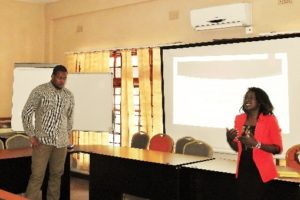 We offer Chartered Management Institute accredited training to our volunteers whilst on placement for free
We offer Chartered Management Institute accredited training to our volunteers whilst on placement for free
By providing internationally accredited training as the backbone of our programme, we are proactively increasing the skill set of local young people who may not have been able to afford university. Of the volunteers that go on to complete their CMI qualification, approx. 50% of completers are from Ghana, Uganda or Zambia. We also offer the opportunity for a select few volunteers to earn their CMI qualification by demonstrating their commitment to the programme and ‘going the extra mile’. Recent studies have found that in Uganda only 15% of people receiving professional, work-based training are women, to date, 49% of Challenges Worldwide’s African volunteers were female, therefore we are having a tremendous impact on allowing young women to develop the skills that they need to excel in their careers.
How does ICS ensure communities get the information and services they need to stay healthy?
“ICS volunteers are ideally placed to reach out to other young people, particularly on issues like sexual health. Our projects also focus on making sure people have decent toilet and washing facilities, which can hugely reduce sickness and diarrhoea”
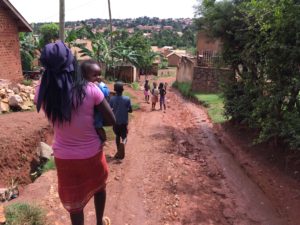 How does Challenges Worldwide ensure communities get the information and services they need to stay healthy?
How does Challenges Worldwide ensure communities get the information and services they need to stay healthy?
Poor health is fundamentally related to poverty. Low-income families are usually the ones with poor sanitation, poor understanding of the links between their environment and disease and insufficient means to afford clinic fees when their children get sick. Providing toilets or putting in standpipes are helpful – but creating jobs will help to lift these families out of poverty – creating the environment where families can afford their own facilities, afford the school fees which will improve their understanding of health issues and give them the means to afford treatment when they are sick. Challenges also supports many health-related businesses such as ones that are trying to improve nutrition and make good food affordable for all.
Uganda – Safe Boda
SafeBoda interviews potential drivers. Those who are successful are provided with customer service and health & safety training together with safety equipment. Customers are then able to access this pool of specially trained drivers through multiple distribution channels (Via Street/Stage, Mobile App, Tollfree line).
The Global Status Report on Road Safety 2013, indicates that Uganda had 2,954 deaths in 2010
Zambia Yako Honey
The CEO of Yako Honey is very passionate about health and well-being, so he really believes in his business’ product, which is fresh honey locally produced in Kitwe. Yaku honey is organic and contains no added sugar. He wants to educate people on the many health benefits of honey and encourage nutrition in households all around the world. In addition to this, the CEO wants his honey to be affordable to all households, allowing them to purchase this nutrition. Yako Honey employs local youths, as well as having various sales agents within local universities and colleges. This promotes empowerment among young people, as well as community development in the local communities of Kitwe.
 Ghana – tinyDavid
Ghana – tinyDavid
The lack of a national addressing system has prompted tinyDAVID to use technology to solve these problems through innovation. tinyDAVID is committed to solving large problems with tiny solutions. They use technology for the benefit of all no matter their social status. tinyDAVID’s current project is an addressing system designed for the developing world. SnooCodes mission is to ‘provide every man, woman and child with a definitive address to ensure that any individual, no matter their economic status, geographic location or social standing can gain access to commercial, emergency and public services they previously could not access because they lacked a workable address.’
How does ICS ensure that people live in a fairer world?
“We want to make sure that people around the world know their rights and can make their voice heard. This issue affects some groups more than others – children and young people, women and disabled people are just a few examples. ICS volunteers help people to know their rights and have the confidence to influence those in power”
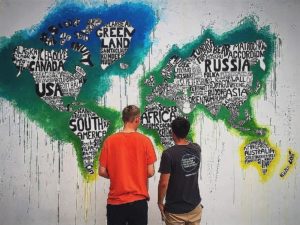 How does Challenges Worldwide ensure a fairer world?
How does Challenges Worldwide ensure a fairer world?
Much of the aid that is directed to developing countries would not be needed if fair trade practices were in place. Companies in many countries are restricted from growth because of barriers and tariffs that protect western economies. Challenges are trying to turn this around by supporting the growth of African companies in way that will help them to compete in this unfair world. Many of the companies that we work with are now exporting goods to fair trade groups in the UK. We want to increase this to the extent that we can turn around current trading practices. We are also deliberately supporting women-led businesses to help improve women’s economic standing within society and help them to become the decision makers of the future.
Uganda – MzuriBeads
Owned and operated by a group of women in Uganda: working with Edith on compiling and submitting the monthly reports to Challenges Marketplace, and also recording finances, sales, orders and purchases in books. Edith has taken this learning on board and is becoming more confident in allowing others to use these records and fill in information. We have encouraged her to also train other women in using Marketplace after our departure. This guarantees the continual, sustainable growth over the long term.
How does ICS protect the environment?
“Climate change will affect the world’s poorest the most. Extreme weather and natural disasters – like drought and flooding – are likely to increase as the world gets warmer, and poor communities struggle the most to cope with these events. Our projects support communities to protect their environment for the future, and to adapt to the effects of climate change”
How does Challenges Worldwide protect the environment?
Climate change is happening and will affect the poorest in developing countries precisely because they are poor. Families cannot afford drought-resistant crops or protect their homes against floods and hurricanes without a stable income. All the current thinking centres on improving resilience to climate change by decreasing poverty and helping people afford the means to put measures in place. Creating sustainable and long-term employment is crucial to helping the most vulnerable people cope with climate change. Challenges also work in a very practical way to mitigate climate change by supporting the growth of renewable energy businesses – particularly those that are promoting the use of fuel-efficient stoves. These stoves help to reduce deforestation and also reduce levels of carbon in the atmosphere.
Zambia – Vitalite
Sells efficient wood-chip burning stoves as opposed to charcoal burning stoves. Deforestation is a huge issue in Zambia, with over 250,000 hectares of forest cleared every year – a significant proportion of this to create charcoal for fuel. In 2014 Vitalite impacted over 3,000 households and 15,000 people, this was before the introduction of their pay as you go system which has increased their reach even further and has huge potential. The largest company of this kind, M-KOPA in Kenya, has connected 400,000 homes to affordable solar power –demonstrating the huge potential of this kind of intervention.
Zambia: Rainlands timber (as featured in the independent)
Based in Kitwe, Northern Zambia, Rainlands have developed Project Optima alongside Challenges Worldwide ICS volunteers. The project aims to curb charcoal use by producing cleaner, safer wood chip stoves. These stoves consume less wood than charcoal alternatives. The project provides women with the tools to sell stoves and wood chip fuel in their local communities.
Ghana Translight solar
Translight Solar are developing innovative products and payment systems to make solar systems much more affordable, enabling a far higher number of people to gain access to a clean, cheap and reliable source of energy. Having a more reliable source of energy will also boost productivity and ultimately economic growth, raising everyone’s standard of living.

There is a whole host of ways that businesses can help tackle global development issues. The key is empowering local businesses to work collaboratively with their employees, suppliers, customers and policy makers to ensure that businesses serve their community. Challenges are currently working to link impact investors and venture philanthropists to companies like those we have introduced in this article through the new Challengesmarketplace enterprise reporting platform. Through Challenges Marketplace we plan to make trade and investment deals quicker, cheaper and more transparent, ensuring that funding goes directly to the businesses that have a huge potential to accelerate socio-economic development for the communities that they trade in.

